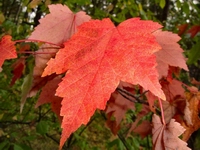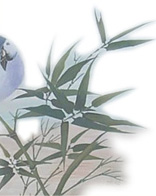|
|
|
 |
English Lesson -- 008: How To Translate A Poem In English (4)
By Mr. Jim Broadbent (Canada)
|
 |
 Hi, friends, it is so lucky that I have got a new good English lesson by a native English speaker -- Mr. Jim Broadbent from Canada. I guess that it is maybe also helpful for the other friends who are learning English as the second language. So, I am trying to publish it here and hope you enjoy it. Hi, friends, it is so lucky that I have got a new good English lesson by a native English speaker -- Mr. Jim Broadbent from Canada. I guess that it is maybe also helpful for the other friends who are learning English as the second language. So, I am trying to publish it here and hope you enjoy it.
If you are a native English speaker, you are welcomed to offer anything positive, optimistic and helpful in this column as an English lesson to help the others and also yourself. :-)
If you have any questions, comments and suggestions, please write to shirley@ebridge.cn , or shirleyz004@yahoo.com. You are welcomed.
-- Shirley
Friday, Nov 18, 2005
Hi Shirley;
Personally I like poetry that observes and glorifies nature. It is a nice way of setting the writer's mood at the time of creating the poem.
远上寒山石径斜,
白云生处有人家。
停车坐爱枫林晚,
霜叶红于二月花。
Yuan3 shang4 han2 shan1 shi2 jin4 xia2,
Bai2 yun2 shen1 shu4 you3 ren2 jia1。
Ting2 che1 zhuo4 hai4 feng1 lin2 wan3,
Shuan1 ye4 hong2 yu2 er4 yue4 hua1。
Your translation:
Go up to a cool mountain far away, a winding stone path over there.
There is a household in the depths of the white clouds,
Stop my carriage, for I love the maple forest in the deep autumn,
The leaves in the frost are redder than the flowers in February.
You are getting a bit better with the translation of this poem. One area that you need improvement is
making your poetry more concise. When writing poetry, one strives to convey a meaning with as few a words as possible. So instead of saying “leaves in the frost”
you would say “frosted leaves”.
Also “in the depths of” can be replaced by “among”. There are times when “in the depths of” may be the phrase of choice such as describing someone as “living in the depths of despair”. You certainly would not describe the person as living “among despair” since here you want to show the level to which the person is suffering. In the case of the village and the clouds, the clouds are floating around the village, so the village lies "among the clouds".
In the third line I don’t think you translated 晚wan3. My dictionary suggests that this could mean“evening”. Please correct me if this is wrong but I think that this meaning fits the poem.
A Note By Shirley:
Thanks a lot for your good help, Mr. Jim Broadbent. Here, the word "晚" -- wan, means late, to point the weather is in the late autumn.
In Chinese, 晚 -- wan, has several meanings. It can be evening, night, late and so on. Here, the poet stopped his carriage for he loved the maple forest in the deep autumn -- in the late fall. So, I translated it to be "Deep Autumn". :-)
This is my translation:
Far away on a cold mountain, a stone path winds up to the top,
Among the pure white clouds stands a village,
I stop my carriage to admire the maple forest in the evening,
The frosted leaves are redder than flowers in February.
 I hope you like the poem. As always I like reading your newsletter. I hope you like the poem. As always I like reading your newsletter.
Best regards
Jim
|
|
|
|
| |
| |
|

